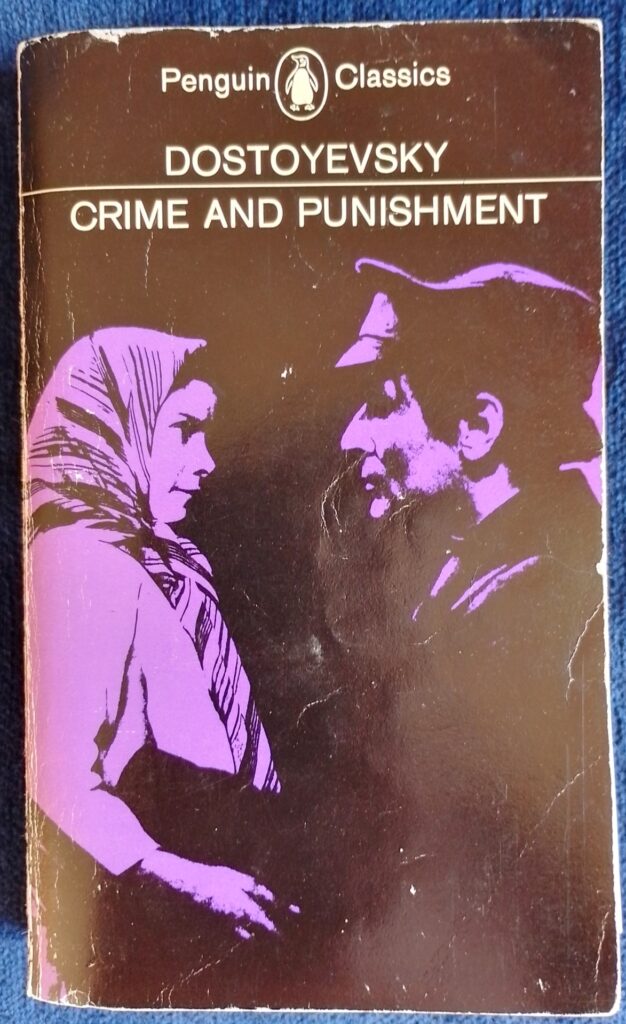First published 1866. Penguin paperback, 1977, translated by David Magarshack, pp 559 including pp 9 introduction, c.245,000 words (main text).
Dostoyevsky was brought up in a solid middle-class family in Moscow. His father was murdered. His life went through a series of wild swings. Dostoyevsky apparently wrote this when he was in desperate financial straits.
The protagonist of Crime and Punishment is Raskolnikov, an erstwhile student who is in financial trouble and thinks this plight is all that is holding him back from being a ‘superman’ (like say, Napolean), and that his situation can be remedied by a murder. He justifies this to himself by thinking of himself as one of the elite and his intended victim a parasite and miser.
The plotting of the story is very uneven, with some considerable irrelevant digressions, for example on religious themes. Characters come in and out of focus rather unevenly and some plot elements are unresolved.
Dostoyevsky very powerfully evokes the Russia of his day. There are some brilliant descriptions of street scenes, apartment buildings, and offices which bring alive the chaos and disorder of the real world. Most of the main characters are very well drawn, and their interior lives forcefully and plausibly realised. His hero’s contradictory thought processes are lifelike, delusions and actions realistic.
As I was reading, I made a note of the names of the characters and their relationships, and I’m glad I did. An apparently minor character in one scene (e.g. a drunk in a bar) might reappear as a major plot element later on. This I found well handled: who knows whether the next person one meets might have a major impact on one’s life at some distant point in the future?
This translation is a fluent read. The prose is strong but not overburdened.
One might think this was a young man’s book from the protagonist’s ill thought through philosophy, but Dostoyevsky was forty-four when he wrote it, and his protagonist is clearly much younger than that. This has become a must-read book for those who wish to be seen to have a full education, but on that score it is over-rated. Enjoy the scenes, but put aside the philosophy: we had our fill of deluded people thinking they are better than everyone else and know the way forward – it was this sort of thinking that led to most of the disasters, wars, genocide and mass murder of the twentieth century.
© William John Graham, May 2022

